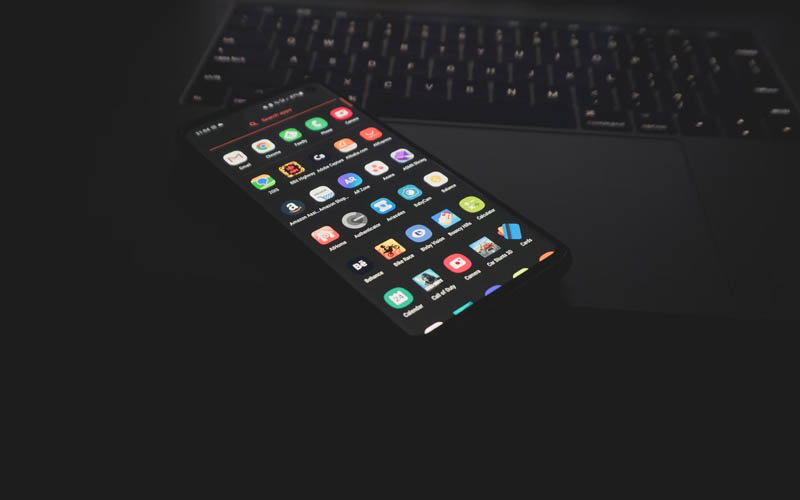Sleep is the foundation of our mental and physical well-being. Yet, many of us struggle to get enough quality rest. If you’re waking up tired or finding it hard to fall asleep, you’re not alone. The good news? Technology is here to help.
This blog dives into the best apps for tracking and improving your sleep quality. You’ll learn about their unique features, how they work using advanced sleep science, and how to incorporate them into your nightly routine for better rest.
Why Sleep Quality Is Essential for Your Health
Sleep isn’t just about the quantity of hours you get—it’s the quality that matters most. Research shows that poor sleep is linked to health issues like increased stress, weakened immunity, and reduced cognitive function. On the other hand, restful and uninterrupted sleep supports a stronger immune system, better focus, and overall happiness.
Enter sleep-tech apps. These tools are designed to track your sleep patterns, analyze your rest cycles, and provide actionable insights to help you improve. Whether you’re battling insomnia, stress-induced restlessness, or just want to optimize your sleep habits, these apps are game-changers.
ADVERTISEMENT
The Best Apps for Tracking and Improving Your Sleep
Below, we’ve compiled the top-rated apps to help you achieve better sleep. Each is designed to make restful nights easy and accessible.
1. Sleep Cycle
Features:
- Smart alarm clock to wake you during your lightest sleep phase
- Detailed sleep analysis with graphs and statistics
- Tracks snoring, breathing patterns, and other sleep disturbances
Why it works:
Sleep Cycle uses motion detection and sound analysis to monitor when you’re in deep, light, or REM sleep. By waking you gently during your lightest sleep phase, it ensures you feel more rested.
Who it’s for:
This app is ideal for anyone wanting to wake up feeling refreshed rather than groggy.
Pro Tip:
Pair it with its bedtime reminder to establish a consistent sleep schedule.
2. Pillow
Features:
- Automatic sleep tracking
- Sleep insights synced with Apple Health
- Built-in relaxing sounds for better sleep prep
Why it works:
Pillow breaks down your sleep cycles by tracking motion and heart rate using your device or smartwatch. It also offers trends to show how your sleep quality improves over time.
Who it’s for:
Perfect for Apple device users who want seamless health integration.
Pro Tip:
Use its journal feature to correlate lifestyle choices (like caffeine intake or late workouts) with your sleep data.
3. Calm
Features:
- Sleep stories narrated by soothing voices
- Guided meditations for better relaxation
- Nature soundscapes for a calming environment
Why it works:
Sometimes, the key to better sleep is managing stress and overthinking. Calm uses mindfulness practices to relax your mind and prepare your body for rest.
Who it’s for:
Ideal for individuals struggling with stress-induced sleep issues.
Pro Tip:
Explore the evening meditation section for a peaceful transition from your day to bedtime.
4. Headspace
Features:
- Sleepcasts, which combine storytelling and tranquil sounds
- “Wind-down” exercises to slow your breathing
- Tools for long-term mindfulness training
Why it works:
Headspace adds a unique blend of mindfulness and focused “wind-down” activities that ease you into sleep mode. It’s like therapy for your overactive mind before bedtime.
Who it’s for:
Great for people who want a scientific and meditative approach to sleep improvement.
Pro Tip:
Unlike other apps, Headspace emphasizes consistency. Use its daily meditation reminders to change your mindset long-term.
5. Fitbit App
Features:
- Comprehensive sleep tracking with Fitbit wearables
- Sleep Score generated based on time asleep, heart rate, and restlessness
- Tools to help you set sleep goals and monitor progress
Why it works:
Fitbit wearables continuously track your sleep stages (light, deep, and REM) and provide actionable insights to improve both duration and quality.
Who it’s for:
Perfect for wearable users focused on integrating sleep tracking with physical health metrics.
Pro Tip:
Leverage your “Sleep Score” data to uncover habits that disrupt your schedule, like late-night screen time.
How Sleep Apps Use Science to Improve Your Sleep
These apps aren’t just fancy alarms—they are rooted in science. By using tools like motion sensors, heart rate monitors, and sound detection, they collect granular sleep data. Here’s how they use it to improve your rest:
- Identifying patterns: Apps like Sleep Cycle track trends, revealing how your lifestyle impacts sleep quality.
- Custom insights: Recommendations, such as reducing blue-light exposure after dark or maintaining a consistent bedtime, help optimize your routine.
- Gentle waking: By mapping your sleep cycle, apps wake you at a time that helps minimize grogginess.
Advanced AI and algorithms consolidate this data to provide tailored advice specifically for your sleep issues.
Real-Life Testimonials That Prove They Work
- “I used Sleep Cycle, and for the first time, I wasn’t dreading my mornings. Its smart alarm made me feel like I actually got a full night’s sleep.” – Claire T., teacher
- “I didn’t think meditation could help until I tried Calm. I’ve gone from waking up 3 times a night to sleeping straight through!” – Alex G., entrepreneur
- “Fitbit’s data showed me how inconsistent my bedtime was. I fixed that, and my Sleep Score went from 65 to 85!” – Jenna P., fitness enthusiast
Tips for Integrating Sleep Apps Into Your Routine
Want to get the most out of these apps? Here’s how to use them effectively:
- Stay consistent. Use the app every night to build meaningful sleep data and habits.
- Pair with wearables. If possible, sync the app with a smartwatch for more accurate metrics.
- Follow insights. Use the feedback provided by your app to tweak your bedtime, lighting, and even mattress if needed.
- Combine methods. For example, use Calm to relax before bed and Fitbit to measure the impact on your sleep score.
The Future of Sleep Technology
Sleep apps have already revolutionized how we think about rest. But this is just the beginning. With advancements in AI, wearable tech, and even virtual reality, the next generation of tools promises even deeper insights and personalized coaching, making interrupted, poor-quality sleep a thing of the past.
These tools aren’t replacing your innate ability to sleep—they’re unlocking its full potential. They help you understand that your restful night is an investment in tomorrow.
ADVERTISEMENT
Don’t wait to prioritize better sleep. Download one of these apps and take your first step toward improved health and well-being today.
ADVERTISEMENT


